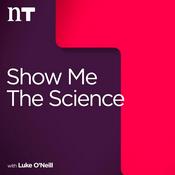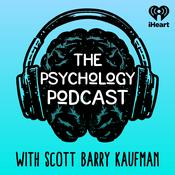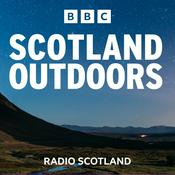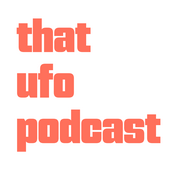106 episodes

S8EB: Monstrous Others with Rachel Dean-Ruzicka
29/12/2025 | 1h 10 mins.
We explore how Stranger Things signals a new monstrous moment, moving from unknowable creatures to human-made villains, and what that shift says about power, identity, and culture. Along the way, we ask how animals get coded as monsters and when their agency is reclaimed or removed in film and TV.Date Recorded: 22 April 2025 Featured: Tolerance Discourse and Young Adult Holocaust Literatureby Rachel Dean-Ruzicka Paranormal Maturation: Uncanny Teenagers and Canny Killers by Rachel Dean-Ruzicka Of Scrivens and Sparks: Girl Geniuses in Young Adult Dystopian Fiction by Rachel Dean-Ruzicka Monster Culture (Seven Theses) by Jeffrey Jerome CohenThe Monster Theory Reader by Jeffrey Andrew WeinstockThe Angel of Indian Lake by Stephen Graham JonesAnnihilation by Jeff VandermeerStranger ThingsCocaine BearMickey 17OkjaRandom Number Generator Horror Podcast No. 9Nature Trail to HellMonsters, Heroes, and Others: Unpacking Power in Media and Politics through Race or SpeciesA.P.P.L.EAnimals in Politics, Law, and Ethics researches how we live in interspecies societies and polities.iROAR NetworkiROAR brings together podcasts that aim is to make the world a better place for animals. Georgia Institute of Technology School of Modern Language, Ivan Allen College of Liberal Arts, School of Literature, Media, & CommunPollination Project The Pollination Project empowers volunteers across by providing the funding they need. Disclaimer: This post contains affiliate links. If you make a purchase, I may receive a commission at no extra cost to you.Support the showThe Animal Turn is hosted and produced by Claudia Hirtenfelder and is part of the iROAR Network. Learn more on our website. Leave a Review on Podchaser Check out The Animal Turn Merch. Support us on Patreon, Buy Me a Coffee, and Buzzsprout.

S8E10: Grad Review with Gina Song Lopez and Taylor Jobling
29/12/2025 | 1h 28 mins.
Gina Song Lopez, researching vegan movements in Taiwan and China through the lens of local culture and social media, and Taylor Jobling, a law lecturer unpacking how Australia’s legislation categorises animals, come on to the show to discuss the main themes and tensions to emerge in Season 8, Animals and Media Date Recorded: 8 December 2025Featured: What Comes After Entanglement by Eva GiraudThe Birth of Korean Cool by Euny HongThe Omnivore’s Deception by John SanbonmatsuAnimals and the Rights to Politics by Sue Donaldson and Will KymlickaAn analytical framework to understand the problematization of urban (historical) animals by Claudia HirtenfelderBlack Fish Finding Nemo FlowThe CoveCowspiracyEarthlingsA.P.P.L.EAnimals in Politics, Law, and Ethics researches how we live in interspecies societies and polities.iROAR NetworkiROAR brings together podcasts that aim is to make the world a better place for animals. Georgia Institute of Technology School of Modern Language, Ivan Allen College of Liberal Arts, School of Literature, Media, & CommunPollination Project The Pollination Project empowers volunteers across by providing the funding they need. Disclaimer: This post contains affiliate links. If you make a purchase, I may receive a commission at no extra cost to you.Support the showThe Animal Turn is hosted and produced by Claudia Hirtenfelder and is part of the iROAR Network. Learn more on our website. Leave a Review on Podchaser Check out The Animal Turn Merch. Support us on Patreon, Buy Me a Coffee, and Buzzsprout.

S8E9: News with Shatabdi Chakrabarti, Jessica Scott-Reid, and Jan Dutkiewicz
22/12/2025 | 1h 34 mins.
In this episode we bring together a photojournalist from India, a Canadian columnist, and a political scientist/reporter to discuss animals and the news. We discuss different types of news as well as some of the challenges that come with creating news content that focuses on animals. Date Recorded: 4 June 2025 Featured: How to Spot Misinformation and Bias About Climate and Food in the News by Jessica Scott-ReidMeatsplaining by Jason HannanFeed the People by Jan Dutkiewicz and Gabriel N. RosenbergMother Cow, Mother India by Yamini Narayanan Netflix’s Liver King Doc skips the meat of the story by Jessica Scott-ReidAn animal rights activist was in court on criminal charges. Why was the case suddenly dismissed? On The GuardianSentient MediaFree WillyWe AnimalsFuture Perfect on VoxAnimal Rights on The New RepublicAnimals on The Guardian Animals Rights Activism on The InterceptAnimals on WiredAnimals on New York TimesAnimal JusticeA.P.P.L.EAnimals in Politics, Law, and Ethics researches how we live in interspecies societies and polities.iROAR NetworkiROAR brings together podcasts that aim is to make the world a better place for animals. Georgia Institute of Technology School of Modern Language, Ivan Allen College of Liberal Arts, School of Literature, Media, & CommunPollination Project The Pollination Project empowers volunteers across by providing the funding they need. Disclaimer: This post contains affiliate links. If you make a purchase, I may receive a commission at no extra cost to you.Support the showThe Animal Turn is hosted and produced by Claudia Hirtenfelder and is part of the iROAR Network. Learn more on our website. Leave a Review on Podchaser Check out The Animal Turn Merch. Support us on Patreon, Buy Me a Coffee, and Buzzsprout.

S8E8: Film and TV with Lynda Korimboccus and Ankita Rathour
22/12/2025 | 1h 35 mins.
In this episode Ankita Rathour and Lynda Korimboccus join Claudia to discuss the interconnections of film, tv, and animals. Together they touch on everything from the Peppa Pig paradox in children’s media to the shifting role of animals in Hindi cinema, nationalism and caste politics. Date Recorded: 2 May 2025 Featured: The Subaltern Gazes: Commentary on Amit Masurkar's Sherni by Ankita Rathour.Pig-ignorant: The Peppa Pig Paradox. Investigating Contradictory Childhood Consumption by Lynda M KorimboccusAnimal representation on UK children’s television by Lynda M KorimboccusCan the Subaltern Speak by Gayatri Chakravorty SpivakFrom Symbolic to Agential: The Evolution of Natural Representation in Indian Eco-Sensitive Filmsby Rakesh Kumar Pankaj and Dibyakusum RayThe Dreaded Comparison: Human and Animal Slaveryby Spiegel, MarjorieHuman supremacism: why are animal rights activists still the “orphans of the left”?by Will KymlickaWhen different is ambivalence: Strategic ignorance about meat consumptionby Marleen C. Onwezen and Cor N. van der WeeleHumane Jobs: A Political Economic Vision for Interspecies Solidarity and Human–Animal Wellbeing by Kendra Coulter Advertising oppression: the reproduction of anthroparchy in UK children's and" family" television by Kate F. Stewart and Matthew ColeShooting an Elephant by George Orwell.Animal Farm by George Orwell.Mother Cow, Mother India by Yamini NarayananThe Sexual Politics of Meat by Carol J AdamsThe Desi Gaze, a podcast by Ankita Rathour.Tribe Animal Sanctuary Peppa PigRRR (Rise, Roar, Revolt)Tigress Sherni Alvin and the ChimpmunksHaathi Mere SaathiThe Elephant Whisperers Matilda and the Brace EscapeEarthlingsBlackfishWickedAzaadArticle 15War HorseBabeThe Last PigDeliverance (A.P.P.L.EAnimals in Politics, Law, and Ethics researches how we live in interspecies societies and polities.Georgia Institute of Technology School of Modern Language, Ivan Allen College of Liberal Arts, School of Literature, Media, & CommuniROAR NetworkiROAR brings together podcasts that aim is to make the world a better place for animals. Pollination Project The Pollination Project empowers volunteers across by providing the funding they need. Disclaimer: This post contains affiliate links. If you make a purchase, I may receive a commission at no extra cost to you.Support the showThe Animal Turn is hosted and produced by Claudia Hirtenfelder and is part of the iROAR Network. Learn more on our website. Leave a Review on Podchaser Check out The Animal Turn Merch. Support us on Patreon, Buy Me a Coffee, and Buzzsprout.

S8E7: Social Media with Laura Fernández, Amanda Weiss, and Siobhan Speiran
15/12/2025 | 1h 24 mins.
Guests Laura Fernández, Amanda Weiss, and Siobhan Speiran join Claudia to discuss case studies as wide ranging as Japanese animal cafes, Spanish bull fighting, and Costa Rican sanctuaries to unfurl the complex relations of social media and animals. Together they probe how social media packages animals as content, why that changes real lives, and where activism, policy, and platform design can push back. Date Recorded: 11 April 2025 Featured: Han Heroes and Yamato Warriors: Competing Masculinities in Chinese and Japanese War Cinema by Amanda WeissCritical Animal and Media Studies by Núria Almiron, Matthew Cole, Carrie P. FreemanMedia Theories and the Crossroads of Critical Animal and Media Studies by Debra MerskinWounded men of feminism: Exploring regimes of male victimhood in the Spanish manosphere by Elisa García Mingo and Silvia Díaz FernándezA field-based Conservation Welfare Assessment Framework for Costa Rican primate sanctuaries by Siobhan SperianThe Emotional politics of images: moral shock, explicit violence and strategic visual communication in the animal liberation movement by Laura FernándezAnimal Traffic: Lively Capital in the Global Exotic Pet Trade by Rosemary-Claire CollardBig Cat Reporting Tool by Four PawsAbout Looking by John BergerThe Philosopher and the Wolf by Mark Rowlands.Social Media Cruelty CoalitionSeoul Zebra EscapeStop Animals Selfie Campaign The Civet ProjectGlobal Federation of SanctuarA.P.P.L.EAnimals in Politics, Law, and Ethics researches how we live in interspecies societies and polities.iROAR NetworkiROAR brings together podcasts that aim is to make the world a better place for animals. Georgia Institute of Technology School of Modern Language, Ivan Allen College of Liberal Arts, School of Literature, Media, & CommunPollination Project The Pollination Project empowers volunteers across by providing the funding they need. Disclaimer: This post contains affiliate links. If you make a purchase, I may receive a commission at no extra cost to you.Support the showThe Animal Turn is hosted and produced by Claudia Hirtenfelder and is part of the iROAR Network. Learn more on our website. Leave a Review on Podchaser Check out The Animal Turn Merch. Support us on Patreon, Buy Me a Coffee, and Buzzsprout.
More Science podcasts
Trending Science podcasts
About The Animal Turn
Listen to The Animal Turn, The Rest Is Science and many other podcasts from around the world with the radio.net app

Get the free radio.net app
- Stations and podcasts to bookmark
- Stream via Wi-Fi or Bluetooth
- Supports Carplay & Android Auto
- Many other app features
Get the free radio.net app
- Stations and podcasts to bookmark
- Stream via Wi-Fi or Bluetooth
- Supports Carplay & Android Auto
- Many other app features


The Animal Turn
download the app,
start listening.







































